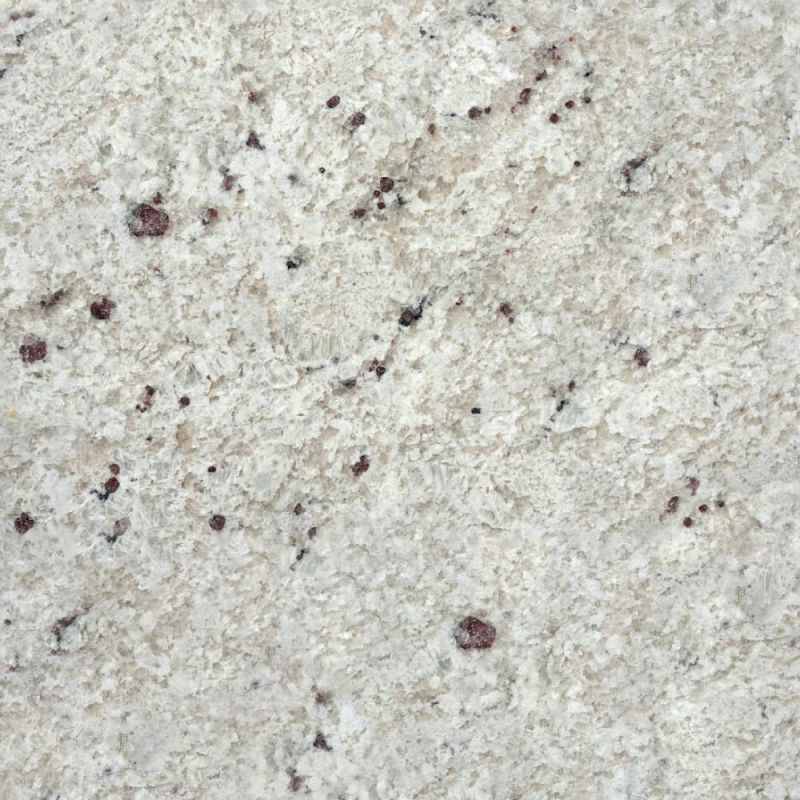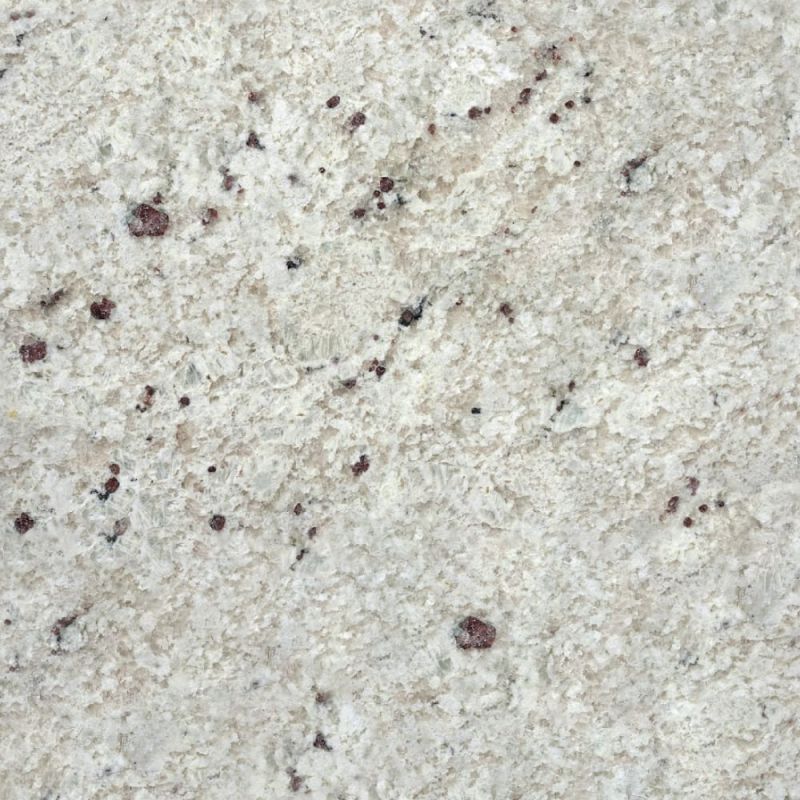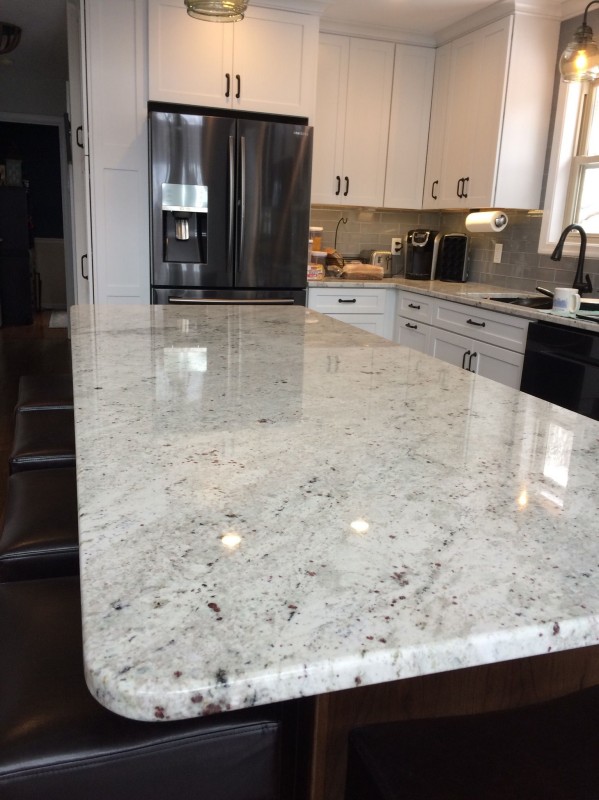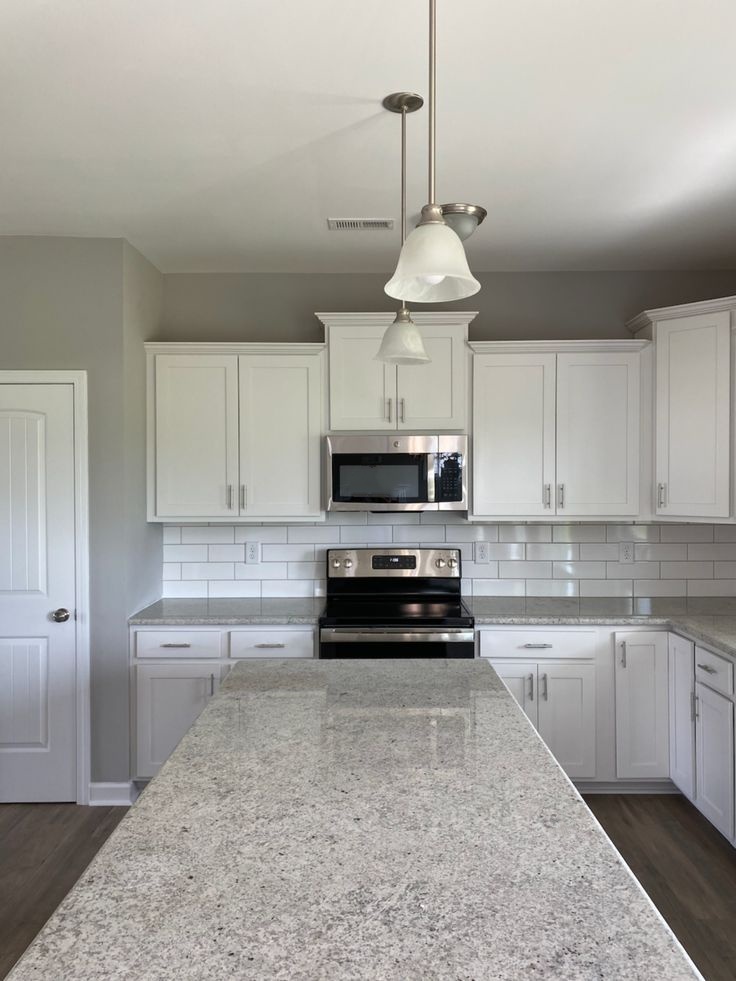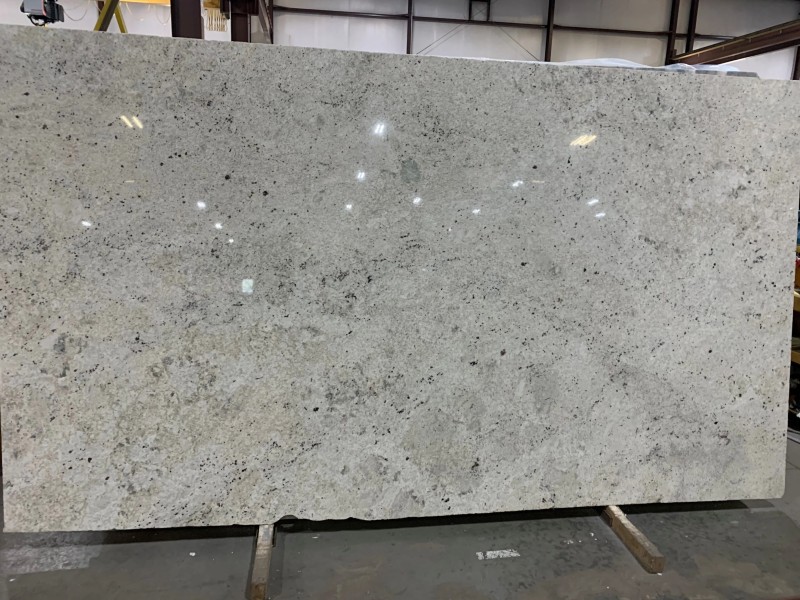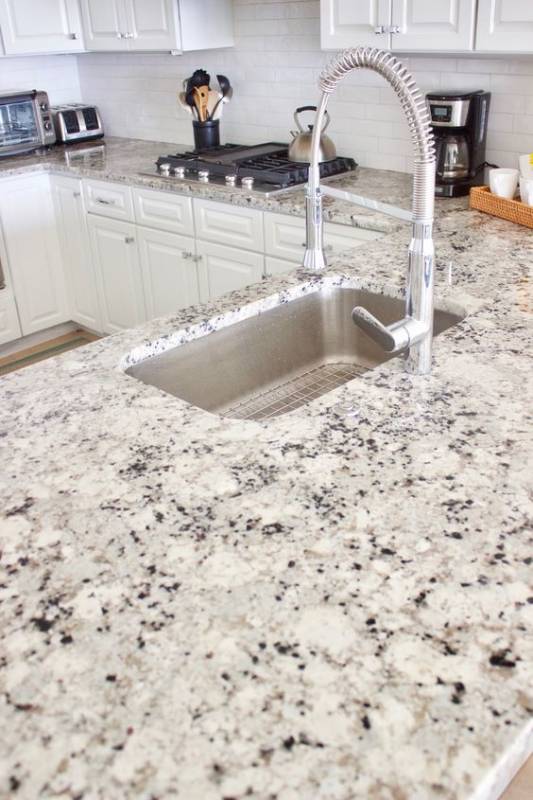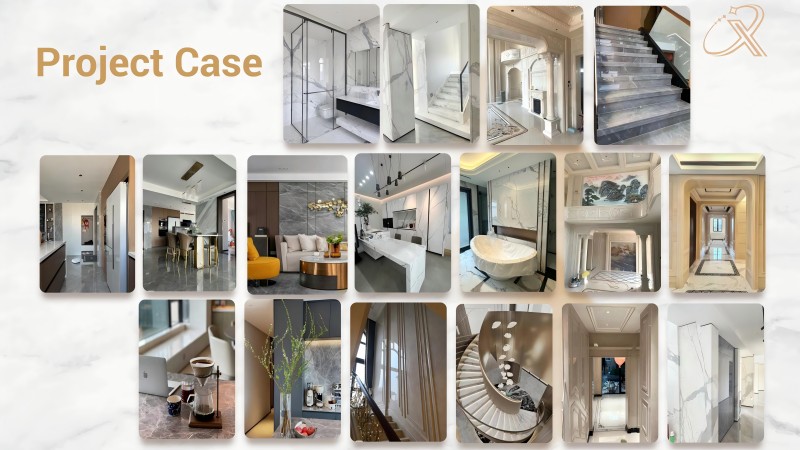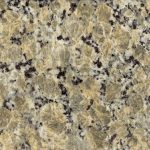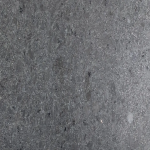Colonial White Granite
Colonial White Granite is a popular and elegant natural stone used in a variety of interior and exterior applications, particularly in kitchens, bathrooms, and flooring. Known for its soft and balanced color palette, Colonial White Granite is often chosen for its aesthetic appeal and versatile characteristics. Here’s an overview of what makes Colonial White Granite a favored choice in the world of natural stone:
Key Characteristics of Colonial White Granite:
- Color and Appearance:
- Light and Neutral Tones: Colonial White Granite features a subtle and sophisticated mix of light shades of white, gray, and off-white, with occasional speckles or veins of black, brown, and beige. The overall look is clean and neutral, making it a great option for a wide variety of design styles.
- Soft Veining: The veining in Colonial White Granite is typically soft and flowing, with gentle patterns that add depth and movement to the surface. These veins may appear in shades of gray, brown, or even gold, adding subtle contrast without overpowering the overall design.
- Elegant and Timeless: The light, airy colors of Colonial White Granite make it an ideal choice for creating elegant and timeless interiors, especially in spaces where a sophisticated yet neutral aesthetic is desired.
- Durability:
- Hard and Dense: Like most granites, Colonial White is a hard and dense material, offering excellent durability. It is resistant to scratches, chips, and general wear, making it suitable for high-traffic areas like kitchen countertops, flooring, and bathroom surfaces.
- Heat Resistance: Granite is naturally heat-resistant, so Colonial White Granite can withstand heat from pots, pans, and hot cookware. However, it’s still advisable to use trivets or hot pads for added protection.
- Impact and Wear Resistance: The stone’s strength means it holds up well under daily use and is less likely to crack or chip from impacts compared to softer stones like marble.
- Low Maintenance:
- Stain Resistance: Colonial White Granite is relatively resistant to stains, though it is still porous. Proper sealing upon installation and periodic resealing is recommended to ensure the stone’s longevity and prevent liquids from seeping in and causing discoloration.
- Easy to Clean: Cleaning Colonial White Granite is straightforward and generally requires only mild soap and water or a pH-neutral cleaner. Harsh chemicals should be avoided as they can damage the surface.
- Longevity: When properly cared for, Colonial White Granite can maintain its appearance for many years, providing long-term value to a property.
How does compare Colonial White Granite to other natural stones in terms of durability?
Colonial White Granite is a highly durable natural stone, but when comparing it to other types of natural stones, its performance in terms of durability, resistance to wear, and overall longevity is similar to other granite varieties, though there are subtle differences. Here’s how it stacks up against other natural stones like marble, quartzite, and soapstone in terms of durability:
1. Hardness and Scratch Resistance
- Colonial White Granite: Granite is one of the hardest natural stones, with a hardness rating of around 6-7 on the Mohs scale. This means it is highly resistant to scratching and abrasions, making it ideal for high-traffic areas like kitchen countertops.
- Marble: Marble is much softer than granite, with a hardness of about 3-5 on the Mohs scale. It is more prone to scratching and dulling over time, especially in high-use areas. Marble requires more care and maintenance to preserve its finish.
- Quartzite: Quartzite is harder than granite, typically ranking around 7 on the Mohs scale. It is highly resistant to scratches and damage, making it one of the most durable natural stones. Quartzite is a great alternative for those seeking a marble-like appearance with the durability of granite.
- Soapstone: Soapstone is softer than granite, with a hardness of about 2-3 on the Mohs scale. It is more susceptible to scratching, but it can be easily sanded and repaired. Its softness, however, makes it less durable compared to granite or quartzite.
2. Porosity and Staining
- Colonial White Granite: Granite is relatively non-porous compared to other natural stones, making it less prone to staining. However, it still requires sealing to ensure it remains resistant to liquids, oils, and acidic substances. Sealing helps prevent staining, but it should be reapplied periodically.
- Marble: Marble is more porous than granite, and while it can be sealed, it is still susceptible to staining from acidic substances like wine, vinegar, and citrus. Etching, which occurs when acidic liquids react with the marble, is also a common issue with marble surfaces.
- Quartzite: Quartzite is much less porous than marble, and its low porosity makes it more resistant to staining. Like granite, it may still benefit from sealing to maintain its resistance to liquids and oils.
- Soapstone: Soapstone is less porous than marble but more porous than granite or quartzite. It is prone to staining over time, particularly from oils and food. It typically requires oiling to maintain its appearance and protect against stains, but this can be an added maintenance step.
3. Heat Resistance
- Colonial White Granite: Granite is highly heat-resistant, which makes it suitable for kitchen countertops where hot pots and pans are often placed. However, extreme heat may still cause damage, so using trivets or hot pads is advisable.
- Marble: Marble has moderate heat resistance but is not as heat-resistant as granite. High temperatures can cause marble to discolor or even crack. It’s best to avoid placing hot items directly on marble surfaces.
- Quartzite: Quartzite is highly heat-resistant, often rivaling granite, and can withstand very high temperatures without damage. It is an excellent choice for kitchen counters and cooking areas.
- Soapstone: Soapstone is the most heat-resistant natural stone, and it can withstand direct heat from pots and pans without being damaged. It is a popular choice for areas where high heat exposure is common.
4. Impact Resistance
- Colonial White Granite: Granite is highly impact-resistant and can withstand heavy use, including accidental drops of kitchenware or utensils. It is less likely to crack or chip under normal conditions compared to softer stones like marble.
- Marble: Marble is more brittle than granite, and while it is durable, it is more prone to chipping and cracking upon impact, especially along the edges. Care should be taken not to drop heavy objects on marble surfaces.
- Quartzite: Quartzite is extremely durable and impact-resistant, even more so than granite. It is highly resistant to chips, cracks, and breakage, making it a strong option for high-use surfaces.
- Soapstone: Soapstone, being softer, is more susceptible to dents and chips, especially on edges. It is not as impact-resistant as granite or quartzite, though it can be easily repaired by sanding.
5. Maintenance Requirements
- Colonial White Granite: Granite is relatively low-maintenance, requiring periodic sealing to maintain its resistance to stains and liquids. Regular cleaning with mild soap and water is usually enough to keep it in good condition.
- Marble: Marble requires more maintenance due to its susceptibility to staining and etching. It needs to be sealed regularly, and it may require more frequent care to avoid damage from acidic substances.
- Quartzite: Quartzite is relatively low-maintenance and requires less sealing than marble. Like granite, it is easy to clean with mild soap and water and doesn’t require as much upkeep to preserve its appearance.
- Soapstone: Soapstone requires periodic oiling to maintain its appearance and protect it from stains. It is more high-maintenance than granite or quartzite but less demanding than marble.
6. Longevity and Wear
- Colonial White Granite: Granite is known for its longevity and can last for decades if properly maintained. It is resistant to wear and tear and maintains its appearance even in high-traffic areas.
- Marble: While marble is beautiful, it is more prone to wear and tear over time, particularly in high-use areas. Etching, scratching, and staining can cause it to lose its luster more quickly than granite or quartzite.
- Quartzite: Quartzite is one of the most durable natural stones and offers excellent longevity. It resists wear, scratches, and staining better than marble, and it can last for generations with proper care.
- Soapstone: Soapstone is durable but may require more maintenance over time, especially in high-traffic areas. It can develop a patina as it ages, which some people find desirable, but it can also become scratched and worn with use.
Durability Comparison Summary:
| Durability Factor | Colonial White Granite | Marble | Quartzite | Soapstone |
|---|---|---|---|---|
| Hardness (Mohs scale) | 6-7 (Hard, Scratch-Resistant) | 3-5 (Soft, Easily Scratched) | 7 (Very Hard, Highly Durable) | 2-3 (Soft, Easily Scratched) |
| Porosity (Staining Risk) | Low (Sealing Recommended) | High (Needs Frequent Sealing) | Low (Sealing Recommended) | Moderate (Oiling Recommended) |
| Heat Resistance | High (Resistant to Heat) | Moderate (Heat Sensitive) | Very High (Resistant to Heat) | Very High (Heat Resistant) |
| Impact Resistance | High (Impact-Resistant) | Moderate (Prone to Chipping) | Very High (Impact-Resistant) | Low (Prone to Dents) |
| Maintenance Requirements | Low (Periodic Sealing) | High (Frequent Sealing, Careful Cleaning) | Low (Occasional Sealing) | Moderate (Oil for Maintenance) |
| Longevity and Wear | Very High (Long-Lasting) | Moderate (Prone to Wear) | Very High (Extremely Durable) | Moderate (Requires More Care) |
What’s the Application of Colonial White Granite ?
Colonial White Granite a range of high-end interior projects since its beauty and unusual tint are widely appreciated.
1.Colonial White Granite Countertop :Colonial White Granite is often used to create stunning kitchen countertops and bathroom vanity tops. Its striking white color and intricate veining add elegance and sophistication to these spaces.
2.Wall Cladding: As a wall covering,Colonial White Granite can create a focal point in any room. It is used in both residential and commercial settings to enhance the visual appeal of walls.
3.Flooring: While it is less commonly used for flooring compared to harder stones like granite ,Colonial White Granite still be used in areas with light foot traffic, such as bathrooms, entryways, and other interior spaces.
4.Feature Walls: The dramatic veining and color variations of Colonial White Granite make it ideal for creating accent walls or feature walls in living rooms, dining rooms, or even hotel lobbies.
5.Decorative Items: Smaller pieces of Colonial White Granite , such as tabletops, fireplace surrounds, and decorative objects, can be used to add a touch of luxury and sophistication to interior design.
6.Bathroom Applications: Besides vanity tops,Colonial White Granite can be used for shower walls, bathtub surrounds, and other bathroom surfaces to create a spa-like atmosphere.
7.Furniture: Custom furniture items like side tables, dining tables, and coffee tables. These works of art that are also useful elevate any room. Each furniture piece is distinctive and draws attention because of the distinctive patterns and colours of this Colonial White Granite
8.Art Installations: Designers and artists frequently work with Colonial White Granite to produce one-of-a-kind art installations. In galleries, public areas, and private collections, artistic works are made stand out by the depth and personality that the natural beauty of the stone provides.
What are the unique features of Colonial White Granite that make it appealing for interior design?
Colonial White Granite is a popular choice in interior design due to its distinct aesthetic and durable characteristics. Here are the unique features that make it appealing for various design applications:
1. Elegant Appearance
- Light and Subtle Color Palette: Colonial White Granite features a soft white or cream background with subtle gray veining, giving it a clean, sophisticated look that complements a wide range of interior styles. It can brighten up any space, making it ideal for kitchens, bathrooms, and living areas.
- Versatility: The neutral tones of Colonial White Granite make it incredibly versatile, seamlessly blending with both contemporary and traditional designs. It works well with various cabinet colors, flooring materials, and decor styles.
- Subtle Patterns and Texture: Unlike heavily patterned stones, Colonial White offers a refined, understated design with soft veins, adding just enough character to avoid being too plain. This makes it a popular choice for those looking for something elegant without overwhelming the space.
2. Durability
- Scratch-Resistant: Colonial White Granite is hard and durable, offering resistance to scratches and abrasions. This makes it ideal for high-traffic areas like kitchens and bathrooms, where surfaces are frequently used.
- Heat-Resistant: As with most granites, Colonial White Granite is heat-resistant, making it suitable for countertops where hot pots, pans, and other kitchenware are frequently used.
- Low Maintenance: While granite does require periodic sealing to maintain its resistance to stains, Colonial White Granite is relatively easy to maintain compared to softer stones like marble. Regular cleaning with mild soap and water is enough to keep it looking pristine.
3. Timeless Aesthetic
- Classic Appeal: The light, neutral tones of Colonial White Granite give it a timeless quality that never goes out of style. It pairs well with a variety of interior design schemes and remains popular even as design trends change.
- High-End Look at a Competitive Price: Granite, including Colonial White, provides a luxurious appearance without the high cost of other premium stones like marble or exotic quartzites, making it an attractive choice for homeowners who want the look of natural stone without breaking the bank.
4. Seamless Integration with Other Materials
- Compatibility with Different Design Elements: The neutral tones and understated patterns of Colonial White Granite make it a great choice for integrating with other materials, such as wood, stainless steel, or glass. It can be used alongside these materials in a wide range of settings, from modern minimalist kitchens to more rustic, traditional spaces.
- Perfect for Open Concept Spaces: Its light color helps to open up space, making it ideal for open-concept layouts, where the design needs to feel cohesive across large areas like kitchens, living rooms, and dining rooms.
5. Increased Home Value
- Premium Feel: The natural beauty and resilience of Colonial White Granite can add significant value to a home. As a high-quality stone, it appeals to buyers looking for a luxury aesthetic that is also durable and functional, making it a great investment for kitchens, bathrooms, and other key areas.
- Durability Adds Longevity: The durability of Colonial White Granite ensures that it will maintain its beauty and functionality over the years, making it an appealing choice for long-term home value.
6. Sustainability
- Natural Stone: As a natural material, Colonial White Granite offers an eco-friendly option for those looking to incorporate sustainable materials into their interior design. Granite is durable, long-lasting, and recyclable, which helps reduce the need for frequent replacements and minimizes environmental impact.
Conclusion:
Colonial White Granite stands out for its balance of beauty, durability, and versatility. Its clean, elegant look and subtle patterns make it a favorite for a wide range of interior design styles, from contemporary to traditional. Whether used as a countertop, backsplash, flooring, or in bathroom designs, its durability and low maintenance ensure that it will remain a stunning and practical choice for years to come.
Factors affecting Colonial White Granite?
Several factors can affect the price, quality, and availability of Colonial White Granite, making it essential to consider these when planning an interior design project. Here’s a breakdown of the factors that influence Colonial White Granite:
1. Source and Availability
- Geographical Location: Colonial White Granite is typically sourced from quarries in India and other regions. The availability of the stone can be influenced by the quarry’s location, mining regulations, and access to infrastructure for extraction and transport. Stones from certain regions might be more expensive due to transportation costs.
- Rarity: While Colonial White Granite is relatively popular, the exact patterning and color variations may vary depending on the specific quarry. More unique variations or rarer slabs can drive up the price.
2. Quality and Grading
- Color Consistency: Colonial White Granite comes in various shades and patterns, and stones with a more consistent color and pattern are generally more desirable and costlier. Stones with fewer imperfections or more uniform veining are considered higher quality.
- Surface Quality: The grade of the stone also affects its price. Higher-grade stones are polished with fewer flaws, cracks, or color irregularities, making them more expensive. Low-grade stones might have visible veins, blemishes, or inclusions that reduce their appeal and affordability.
- Slab Thickness: Thicker slabs are often more expensive than thinner ones, as they require more stone to be extracted and processed.
3. Fabrication and Processing
- Cutting and Polishing: The level of craftsmanship involved in cutting, polishing, and finishing the granite can impact its cost. Precision cutting and detailed polishing, especially for custom designs or intricate edges, can add to the price.
- Edge Treatments: Custom edge profiles, such as beveled, bullnose, or waterfall edges, can increase fabrication costs. Complex edge designs require more work and are priced higher.
- Finish Type: The type of finish applied to the granite—polished, honed, brushed, or leathered—can affect its price. Polished finishes are usually more expensive due to the labor-intensive process, while honed or brushed finishes are less expensive.
4. Transportation and Shipping
- Distance: The cost of transporting Colonial White Granite from the quarry to your location can be a significant factor, especially if it is being shipped internationally. The farther the stone needs to travel, the higher the shipping costs will be.
- Packaging: Granite is a heavy and fragile material, so packaging and handling costs can add to the price. Special care is required to ensure that the stone arrives without damage, especially when it’s being shipped over long distances.
5. Market Demand
- Trends in Design: If Colonial White Granite is in high demand due to its aesthetic appeal, trends, or popularity, the price may increase. Granite trends can shift over time, with certain colors and patterns becoming more sought after, driving up costs.
- Economic Conditions: The state of the global economy, fluctuations in raw material prices, and demand from other markets (such as the construction industry or high-end residential projects) can also influence the price of granite.
6. Supply Chain and Import Tariffs
- Import Tariffs and Taxes: If Colonial White Granite is being imported, tariffs, taxes, and customs duties can significantly impact the price. These additional costs are usually passed down to the consumer.
- Supply Chain Disruptions: Disruptions in the supply chain, such as transportation delays or shortages in the raw material, can cause prices to fluctuate. If there is a shortage of Colonial White Granite, suppliers may raise prices to balance demand.
7. Customization and Installation
- Customization: Customized designs or patterns in Colonial White Granite can increase costs. For example, custom-cut pieces for specific shapes, intricate designs, or personalized engraving will cost more than standard slabs.
- Installation: The complexity of installation can also affect the overall price. High-quality installation involves precise measurement, cutting, and fitting, and may involve additional costs for professional labor. Difficult installations, like countertops with unusual shapes or large spaces, may cost more.
8. Sealing and Maintenance
- Sealing: Although Colonial White Granite is more durable and less porous than marble, it still requires sealing to protect against stains. Some suppliers may charge extra for sealing services, or you may need to factor in the cost of periodic resealing.
- Long-Term Care and Maintenance: Although granite is relatively low-maintenance compared to marble or soapstone, the cost of ongoing maintenance—such as cleaning products, sealing, and repairs—should be considered in your long-term budget.
9. Availability of Alternatives
- Availability of Similar Stones: The presence of similar, more affordable alternatives can affect the price of Colonial White Granite. For example, stones with similar colors and patterns, such as other types of white or light-colored granites, may create competition and push prices lower.
- Synthetic Options: Quartz countertops or engineered stones that mimic the look of granite may be offered at lower prices. If consumers opt for synthetic alternatives, the demand for natural granite like Colonial White could decrease, influencing its price.
Why Opt For Xiamen Funshine Stone?
1.Our design consultation service at Funshine Stone gives our customers peace of mind, high-quality stone, and professional guidance. Our expertise lies in natural stone design tiles, and we offer comprehensive “top to bottom” consulting to realize your idea.
2.With a combined 30 years of project expertise, we have worked on a vast array of projects and established enduring relationships with numerous people.
3.With a huge assortment of natural and engineered stones, including marble, granite, bluestone, basalt, travertine, terrazzo, quartz, and more, Funshine Stone is pleased to provide one of the largest selections available. It is clear that our use of the best stone available is superior.







